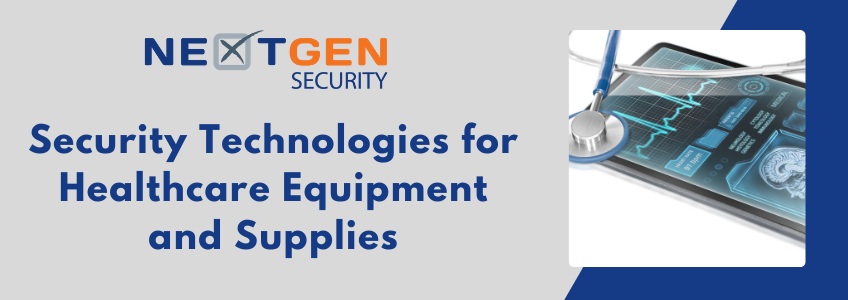Providing excellent patient care is a top priority for hospitals and other healthcare facilities. And while tending to patients’ wellbeing and safety is paramount, there are other security concerns to consider, as well.
The reality is – hospitals are not immune to theft. They house many high-value assets that appeal to thieves, from expensive medical equipment to pharmaceutical drugs to patient data that can be exploited for identity theft. Technologies including Radio Frequency Identification (RFID) are being leveraged to track and manage assets and supplies, as well as patients.
A Radio Frequency Identification (RFID) technology system uses radio waves to transmit data between a reader and an RFID tag. It consists of a tiny radio transponder called a tag, a radio reciever and a transmitter. When triggered by an electromagnetic interrogation pulse from a nearby RFID reader device, the tag transmits digital data, usually an identifying inventory number, back to the reader.
Small, electronic devices that store and transmit information, RFID tags can be attached to an array of products and assets. When an RFID reader transmits a signal, the RFID tag responds with its stored data, enabling quick and efficient identification and tracking.
Specifically, healthcare facilities facilities can use RFID tags keep track of patients and their belongings, visitors, staff, medical records, drugs, surgical tools, heavy equipment, medical supplies, and even laundry. In addition, an RFID tag can hold all important patient data and make it easily accessible to hospital staff as needed.
There are many other reasons why RFID technology is gaining popularity in healthcare settings. RFID tags can also help automate inventory management, reduce waste, improve patient safety, and enhance operational efficiency.
RFID asset tracking reduces loss prevention in a variety of ways. Real-time tracking of assets provides accurate information detailing their location. By leveraging RFID tags that are attached to assets such as wheelchairs, monitors, and surgical instruments, hospitals can conduct regular and automated inventory audits, lowering the risk of misplaced or lost items going undetected for long periods of time. And because hospital emergency rooms are almost always super busy, RFID technology is particularly helpful in enabling staff to quickly locate and deploy critical equipment needed for life-saving emergency procedures.
Because RFID asset tracking systems can be integrated with other security and management systems such as surveillance cameras and access control systems, loss prevention efforts can be streamlined and enhance overall security.
Call NextGen to learn more about how RFID technology can benefit your facility and deliver substantial cost savings over time.

